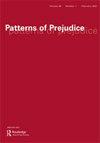更好的方法
IF 0.8
2区 社会学
Q4 ETHNIC STUDIES
引用次数: 0
摘要
但也许道德和认识论之间的关系是相反的,我们的认知责任范围限制了我们的道德责任范围。起初,这似乎是一个不受欢迎的想法。相反,本章认为,它可以帮助偏见的受害者寻求补救。道德责任是一个多维度的概念:虽然道德责任的归属与认知责任的归属似乎是合理的,但其他形式的道德责任却没有。根据侵权法和歧视法的见解,本章认为,受害者声称自己受到了冤枉,并不取决于他们是否有能力证明他们的受害者处于知道他们的行为是错误的位置。这就使偏见的受害者摆脱了必须证明有偏见的信徒在普遍情况下,或者在任何特定情况下,他们的信仰在认识论上是不合理的这一沉重负担。本文章由计算机程序翻译,如有差异,请以英文原文为准。
A Better Approach
But maybe the relation between morality and epistemology runs in the opposite direction, and it is the range of our epistemic responsibility which constrains the range of our moral responsibility. Initially, this may seem like an unwelcome thought. To the contrary, this chapter argues that it can serve to empower victims of prejudice seeking redress. Moral responsibility is a multi-dimensional concept: while it is plausible that ascriptions of moral blame track ascriptions of epistemic responsibility, other forms of moral liability do not. Drawing on insights from tort law and discrimination law, this chapter argues that victims’ claims to have been wronged in no way depends on their ability to demonstrate that their victimizers were positioned to know that their actions were wrong. This frees victims of prejudice from the substantial burden of having to show that prejudiced believers are—universally, or in any specific case—epistemically irrational in believing as they do.
求助全文
通过发布文献求助,成功后即可免费获取论文全文。
去求助
来源期刊

Patterns of Prejudice
Multiple-
CiteScore
2.50
自引率
0.00%
发文量
11
期刊介绍:
Patterns of Prejudice provides a forum for exploring the historical roots and contemporary varieties of social exclusion and the demonization or stigmatisation of the Other. It probes the language and construction of "race", nation, colour, and ethnicity, as well as the linkages between these categories. It encourages discussion of issues at the top of the public policy agenda, such as asylum, immigration, hate crimes and citizenship. As none of these issues are confined to any one region, Patterns of Prejudice maintains a global optic, at the same time as scrutinizing intensely the history and development of intolerance and chauvinism in the United States and Europe, both East and West.
 求助内容:
求助内容: 应助结果提醒方式:
应助结果提醒方式:


